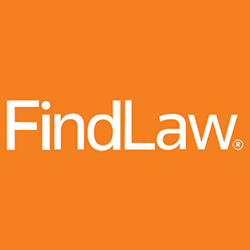Filing Chapter 13 Bankruptcy in Oregon
Chapter 13 bankruptcy is a court-supervised repayment plan, a consolidation of your debts into one payment, paid to the Court appointed Trustee. The Court has the power to force your creditors into one affordable payment. You pay the Trustee, and then each month, the Trustee distributes the money to your creditors according to the Chapter 13 Plan approved by the Court and created by your Attorney.
Chapter 13 bankruptcy is designed to help people save their home and car, and to stop foreclosures or repossessions. It is designed to pay back your creditors over time, to pay off the debts you cannot wipe out in a chapter 7 like student loans, taxes, past due mortgage payments, or parking tickets. We can also use chapter 13 to protect a cosigner from creditor harassment.
We can consolidate all of your debts (including credit card balances) and often you will not have to pay interest, or even pay back the debts in full. This can save you much money.
Filing a chapter 13 case will stop a foreclosure in the State of Illinois as long as you file the chapter 13 before the “Sheriff’s Sale.”
Filing a chapter 13 can stop the repo man from taking your car; we can even get the car back after it has been repossessed in some circumstances (for example, if you need the car to get to work). We also use Chapter 13 bankruptcy to protect your cosigners from collection activities while you make the payments through the Court.
It is important that you discuss all of your options and your entire financial circumstances with an experienced attorney before you make your final decision as to which path you should take. Often refinancing your home can be an option to avoid bankruptcy, but you must be careful of people trying to take advantage of you. Sometimes refinancing is not possible, or even a good idea. The danger of refinancing is that you pay off your credit cards with a new loan, secured by your home, but you once again run up those credit cards, so you then owe the higher mortgage and all the credit cards. Be careful. Especially beware of interest only loans, adjustable rate mortgages and balloon payments. If it sounds too good to be true, it probably is!
Chapter 13 Repayment Plans typically run for three to five years, depending upon many factors, including your income, living expenses, the number of people in your household, the type of debts you have, and the amounts you owe.
The new Federal Bankruptcy Laws are complicated, and that is why I urge you to consider an experienced attorney only. There are many ways an attorney can manipulate the new Bankruptcy Laws to work for you. You should consult only with an experienced bankruptcy attorney whose practice concentrates in bankruptcy law before you make any decisions regarding your financial problems.
To determine which type of bankruptcy is most appropriate for you requires an involved investigation into your financial affairs, including your income (now and over the last several years), the members of your household, and the property you own now and have owned over the last 10 years. The new bankruptcy laws have made this even more complicated so I urge you to only seek counsel from attorneys concentrating in the practice of bankruptcy law. The new laws have many new rules and deadlines that are not known to the general practioner.
Any bankruptcy filing will stop creditor harassment and collection activities, but you must be sure you are filing under the correct chapter and that all your options have been explained to you. And that your attorney has reviewed your case in sufficient detail to provide you with all of your options.



